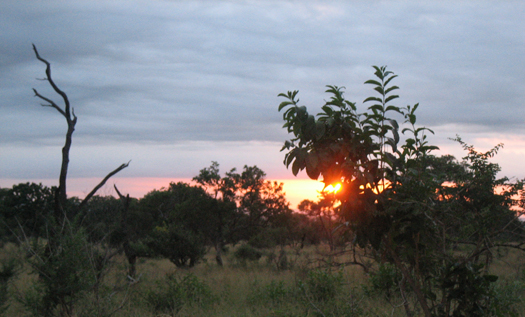| Sun | Mon | Tue | Wed | Thu | Fri | Sat |
|---|---|---|---|---|---|---|
| 1 | 2 | 3 | 4 | 5 | ||
| 6 | 7 | 8 | 9 | 10 | 11 | 12 |
| 13 | 14 | 15 | 16 | 17 | 18 | 19 |
| 20 | 21 | 22 | 23 | 24 | 25 | 26 |
| 27 | 28 | 29 | 30 | 31 |
CATEGORIES
RECENT ENTRIES
BLOG ROLL
Out of Africa

Magazine intern Shira Tevah, ’09, spent winter quarter abroad as part of Chicago’s African Civilizations course. This is her last dispatch about her time in South Africa.—Ed.
I wore sundresses and nice shoes more often in Cape Town than I remember ever having done. That isn’t what you expect someone just back from Africa to say. It wasn’t what I had expected either—most of South Africa was more developed than I had realized it would be. On the South African rand I could afford a more elegant lifestyle than in Chicago. A fancy, several-course meal with wine usually cost less than $15, and often the temptation was too great to ignore.
My friends and I were uncomfortable spending so much time shopping, eating delicious food, and seeing occasional theater. We had hoped to focus on the sociopolitical landscape, but we didn’t find it very accessible. Cape Town is physically segregated: the city’s population is mostly white and middle- or upper-class, while the poor live miles away. Professors John and Jean Comaroff and David Bunn talked to us about volunteering and interning opportunities but warned that we might be more trouble for organizations than we’d be worth.
I did leave the city center several times to meet up with a friend of history graduate student Toussaint Losier. Losier worked with the Anti-Eviction Campaign last summer through Chicago’s Human Rights Internship Program, and he put me in contact with the campaign’s Ashraf.Ashraf introduced me to a community of squatters living in shacks of wood, tin, and plastic bags behind a housing development, planning to stay until the government gave them promised homes. I also met his cousin, a woman organizing a union of suburban hawkers upset because they were no longer allowed to sell their vegetables, socks, and electronics on the town square. But at the end of the day, I went back to my luxurious guesthouse on a hill.
We did have unlimited access to our South African professors. They invited us into their homes and introduced us to their friends. They drove us around the country for hours at a time, while we mined them for stories and information. (We were especially car-bound for two weeks in Kruger, where visitors may only exit their vehicles with a guide because of wild animals freely roving the national park). They put up with heroic amounts of student angst—about poverty, AIDS, inequality, and our place in it all—and scores of annoying questions.
I gradually pieced together an understanding of the city and nation, based on the courses, daily life, newspapers, and events including a panel of government officials from different political parties, hosted by the Institute for Democracy in South Africa. The Cape Town program was the beginning of my Africa education, and I hope to build on it in coming years. Traveling transposes a vivid picture onto the imprecise and mostly blank world map in my head, and now, as I follow the South African elections and other news, the stories resonate.
Shira Tevah, ’09
RECOMMENDED LINK
RECOMMENDED READING
- Dispatch One, “The New Year Begins in Africa” (UChiBLOGo, Jan. 2, 2009)
- Dispatch Two, “Magical Thinking” (UChiBLOGo, Feb. 4, 2009)
April 27, 2009
